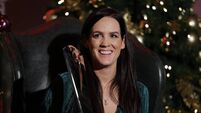'Men will never understand what it means to try to grow a baby while you work'
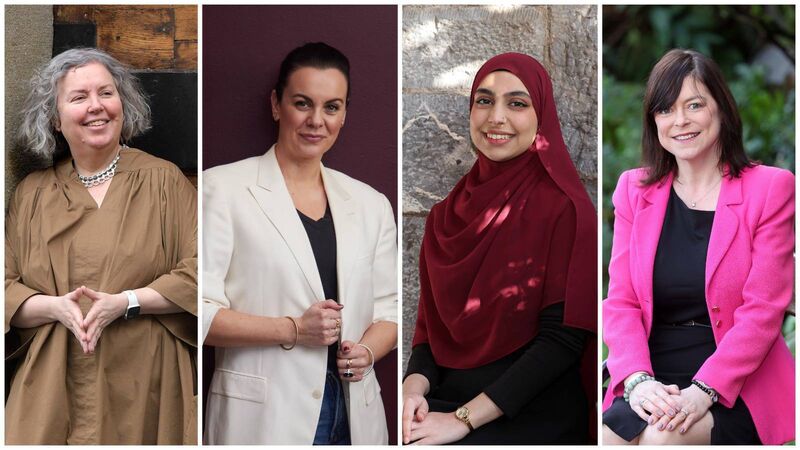
Linda Doyle, Hilary Rose, Amina Baig, and Louise Crowley on the issues that women face in Ireland today
That wise woman Maya Angelou nailed it when she said: “Each time a woman stands up for herself, she stands up for all women.” That eloquent call to action has within it a practical truth that is so self-evident it risks being overlooked. To influence the macro, focus on the micro. Your daily actions matter so much more than you realise.
In the turbulent times in which we live, when the rights of women are being dismantled and disregarded across the globe and gender-based violence is at an epidemic, it can seem futile to try to effect positive change. Take heart, it is not.
For International Women’s Day 2025, I spoke to four women who are driving change and creating a more equitable world for us all through their actions. They will inspire you. Indeed, speaking with them has already sparked a powerful change in my life — I no longer pepper my emails with ‘I’m sorry…’ or ‘I’m just…’. I have learned, at the age of 53, that I do not need to apologise for myself when communicating within the world of work. Take note, neither do you.
Whether it is identifying our unconscious biases, or educating ourselves and our children and our colleagues and our peers, or actively listening to those experiencing gender inequality, or speaking out against gender inequality and all of its manifest iterations at every opportunity and having the courage and conviction to continue doing so throughout our lives, we can all contribute to the change we want to see in the world. Simply put, it starts with us.
Linda Doyle
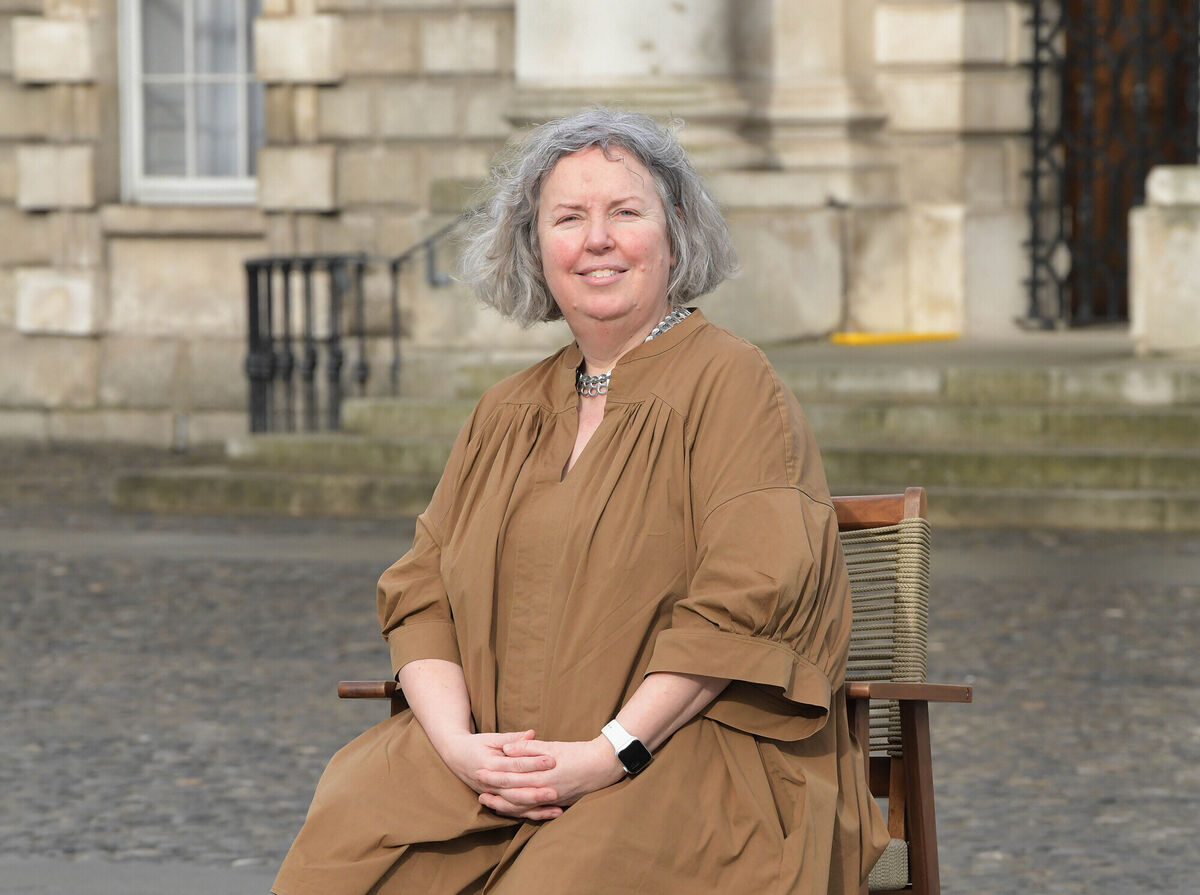
Linda is the 45th provost of Trinity College Dublin, the first woman to hold the role in the university’s 429-year history. She is an active advocate for women in computer science and engineering, with involvement in many initiatives including Girls in Tech and Teen Turn.
“Being elected provost was one of the best days of my life. By coincidence, when I ran for election, the others running were also women. A fantastic thing about that was, you didn’t have to keep talking about being the first woman or being a woman during the campaign because there was going to be a woman [provost]. It didn’t have to be part of the discussion.
“I don’t think I go into a room and people think, ‘Oh, there’s a woman provost.’ They just think, ‘There’s the provost.’ That’s a huge sign of progress. There’s a big change in the Irish education landscape in terms of women presidents. There’s a strong presence of women now that you wouldn’t have seen a few years ago. The whole world has changed since I was a student. I went to an open day in UCC when I was in school and somebody started talking about electrical engineering. I said, ‘That’s for me.’
“Open days and exposing people to different courses are really important because you don’t always know what exactly it is you want, you don’t even know the name of it. I certainly didn’t; I don’t think I really knew what engineering was or that there were different kinds of engineering, and I wouldn’t have known had I not gone to that open day.
“When I first came into the role of provost, I went to visit my former primary school, Togher Girls’ NS, a wonderful school. I was amazed by the students and really taken aback by how broad and varied their ambitions were, right across business, arts, science, sports.
“I think that’s different to when I was young. There’s a wider set of ambitions now and that indicates to me some of those barriers are gone in terms of people believing in themselves. I think many young girls now don’t think along gender lines [when considering a career]. That has really shifted. I think parents who have an attitude of ‘you can be anything you want to be’ really helps.
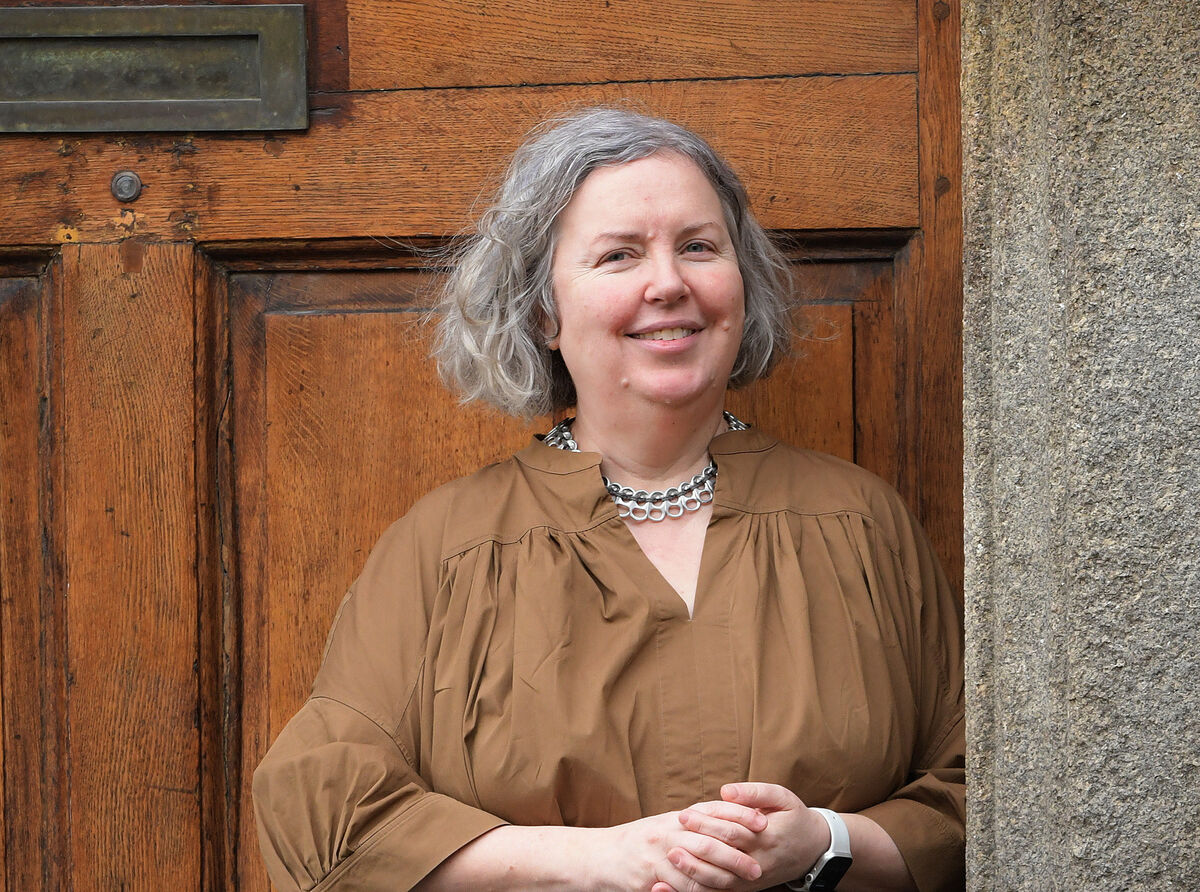
“On the academic side, at the most senior professor level, women are still under-represented. Trinity has about 31% of women professors at the highest level, which is better than other institutions. The student profile is also changing. There are more women in university than there are men, in the main, and an increasing number of women in courses that didn’t have many women in them previously.
“In engineering now, among undergraduates [in Trinity], we have 32% women students; among postgraduates, it’s 37% women. When I was an undergraduate [in engineering], I don’t think I had any female lecturers. But change can be slow to move through the system. Even today, though, there are more women lecturers in engineering than there were, young women coming in would see mainly men teaching them.
“Still, there are huge signs of progress. I see more women teaching STEM subjects. I see many more initiatives to encourage women into those kinds of areas that wouldn’t have existed when I was an undergraduate. We didn’t even talk about those kinds of things then. So, to a certain extent, there’s been a removal of lots of blocks.
I sometimes wonder if it was easier for me to progress through my career because I didn’t have to think about children. For one reason or another, I never wanted to have children. I am aware of the additional freedom this gives me with my time and choices.
“I think, when you go back to the gender issue, it’s also about having the time to do the things outside of the roles that are expected of you to be able to flourish. I think that’s still a challenge for women because, at particular points of your career, when there’s an opportunity to step up and move on, you may have other things that you have to focus on too or choices that you have to make. Because I didn’t have children, I didn’t have to make those choices.
“It’s brilliant to be head of this institution. We see improvements throughout Trinity regarding women’s progression. But I have learned that the minute you stop focusing on this, things start to go backwards. You might think, ‘Things are changing and I’m sure they’ll just keep going and we’ve reached a tipping point,’ but that is not the case. You must push and keep on intervening seriously — and in detail — to make things change for women, to make sure progress continues.
“When I think of the situation of women in the wider world, it’s striking that only 2bn of the 8bn people in the world live in countries that follow the rule of law. This obviously impedes progress for women. Our beliefs in democracy and inclusivity and openness are in the tiny minority, since three-quarters of the world have a different view. Those views, when they don’t favour democracy or the rule of law or openness and inclusivity, they all disproportionately impact women negatively. So, while I am talking about progress for women, I am talking about it uniquely in our country, in the institution I am in.
“Don’t get me wrong. We make lots of mistakes and we don’t have it as good as it should be. And you must keep pushing at it. I’m not saying by any means we’ve got it cracked. We don’t. But we are lucky that, here, those things matter.”
Hilary Rose
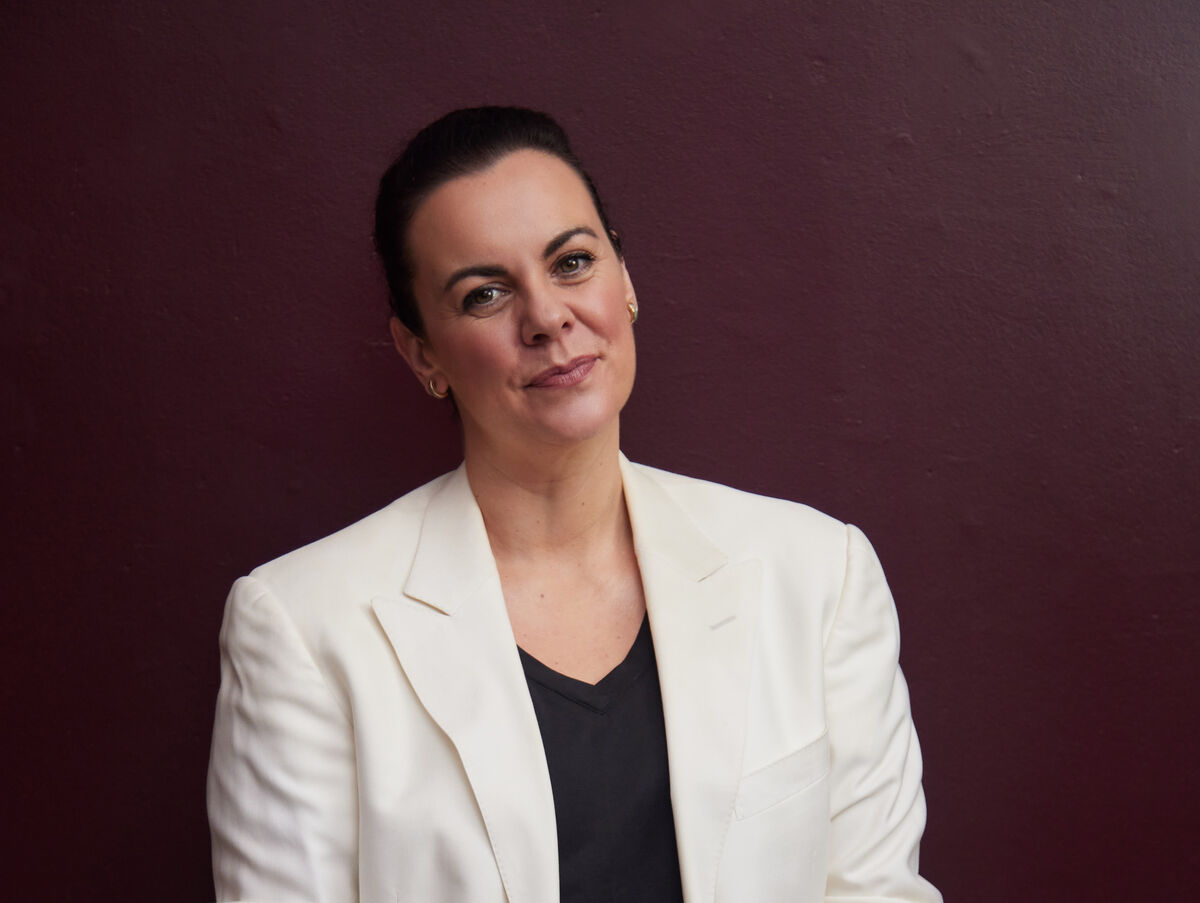
Hilary is an award-winning actor, the creator and host of Live Wild podcast, and a speaker on topics including wellness, leadership, and the power of words.
“Why is gender equality still relevant in 2025? Because we’re just not there yet. It feels women, and in particular I’m looking at it from a working mom’s point of view, are doing the lion’s share of everything.
“It’s practically impossible to have a successful career, keep your family healthy and safe, mind, body, and soul, keep yourself healthy and safe, mind, body, and soul, and still be able to enjoy life and thrive. In some ways, I feel we were sold a pup. There is this toxic notion that we can have it all, and I don’t think that’s possible for everybody at every stage of their lives, all day, every day.
“For me, accepting that there are cycles to life is a much healthier way to live. Understanding that there are cycles when your career will be at a boom, and then cycles when other things will take priority, like family and children, if you choose to have children. And that the two shouldn’t necessarily coincide. We should be encouraged, I think, to embrace the cycles of life, step back and go with the flow, rather than trying to constantly forge forward. I think it leads to unhappiness, burnout, and a sense that we didn’t achieve what we were supposed to achieve. You don’t try to do it all. To me, that’s the core message.
“I’m all about what I call radical rest. By doing little things, micro actions, during the day — for example, saying I’m not going to put on another load of washing, I’m going to sit down for 10 minutes — by having that healthy boundary, creating that sanctuary for yourself, it frees up a lot of problem-solving capabilities and creativity. In a workplace, if you can take a step back for 10 minutes, take a walk outside, sometimes that can be much more productive. When I’m problem-solving and I can’t get past an issue, I tools-down and go for a walk. I leave my subconscious working it out in the background. By the time I get home from the walk, I have the problem solved.
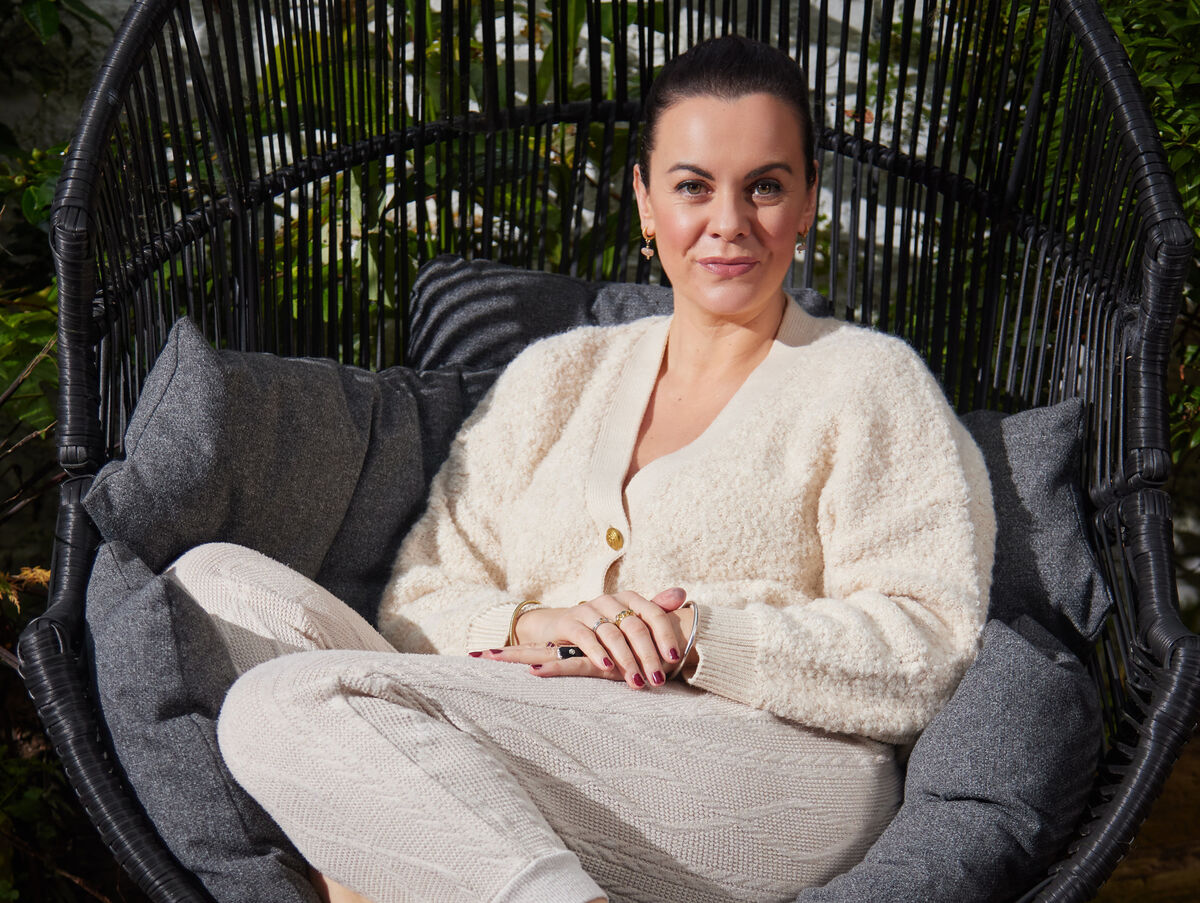
“There is a way to do it by taking the pressure off, rather than driving forward. By prioritising rest, it means the men have to step up. If you have a very healthy boundary and say, ‘No, I can’t do that today’ or ‘No, I can’t cook the meal today, can you please give me a dig out?’ I think that’s where it starts, from the ground up. You have to care for the carer. I always say if the men don’t take care of the women, the family falls apart. I feel radical rest might be the answer.
“In my industry, there’s very little support system for women who have children. It’s the way the system is set up. It’s 12 to 14-hour days. More often than not, you’re away from home. You don’t have on-set creches or childcare, so it’s really stressful.
“Something in the industry has to change around that. I was pregnant on set for a lot of The Young Offenders and sometimes I didn’t have a seat. I had to go, ‘Guys, when we break, I need a seat. I need to sit down.’
That’s the inequality of it, in that men just don’t understand. They will never understand what it means to be dead on your feet and try to grow a baby while you work.
“There’s a bit of an education piece around that where men need to listen and understand what actually happens within us.
“I think when you [define for yourself] what’s equal or not, is when you experience it. My experience of it was that I had to juggle it all, to the detriment of my own health and being. That’s why I’m passionate about creating a sanctuary of radical rest, of downing tools and saying no, I’m not capable of doing that at that time and that doesn’t take anything away from me. I’m going to prioritise my rest and my sanctuary, even for 10 minutes. If you can give yourself that radical piece of rest, in the long term, you will spur on creativity, which, I think, will help to accelerate gender equality. We’ll find more creative ways to go about our day and to make things more equal.
“[Feeling guilty] actually adds to a layer of pressure. You don’t finish all the chores you were supposed to do in the day, you feel bad about it, you take that to bed with you, and you wake up and you’re on the back foot immediately. Then that just carries on, day to day, week to week, month to month. I don’t think that’s healthy. Again, that comes back to us being sold a pup — you have to have it all, and you have to do it all.
“I feel, as women, we’re flogging ourselves, and I see it with my friends. But we all give each other the nudge and say, ‘Hey, you’re wrecked. Slow down, just slow down for this weekend, next week, and then pick it back up again.’
“By prioritising this radical rest — prioritising ourselves, our health, our well-being — I think that will make us more equal. It’ll give us the resilience to keep moving forward.”
Amina Baig
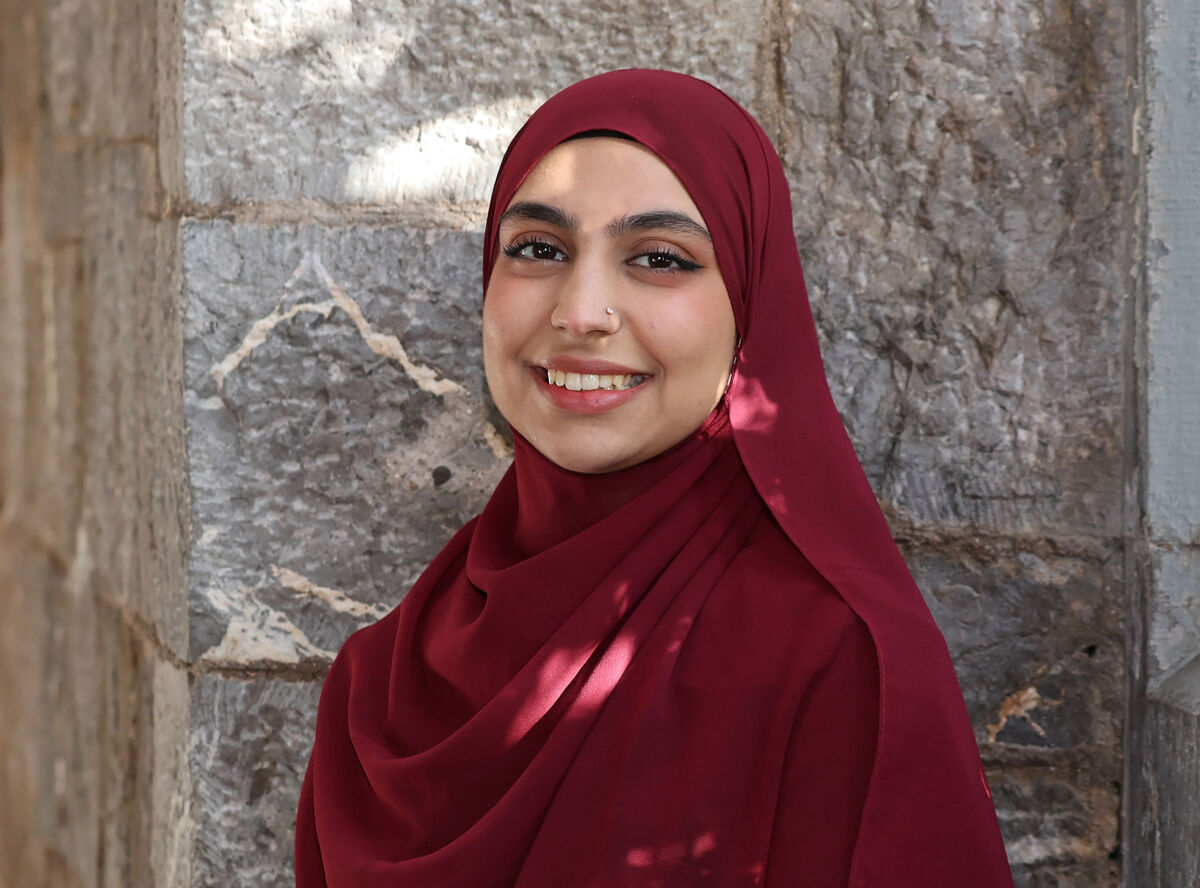
Amina is a second-year computer science student at UCC and a PepsiCo mentee. For her dedication in advancing women in STEM, and in recognition of her potential, she was awarded the Johnson & Johnson WiSTEM2D. She’s also a gamer.
“I am ethnically Pakistani but I was born and raised in Bishopstown in Cork. I’m 20 and in second year studying computer science in UCC.
“In my secondary school, we didn’t have the option to do computer science. The boys’ schools had tech graph and computer science, and I was more interested in those things, but we didn’t have the option. So I didn’t think there was a place for me, as a woman, in that field. In transition year, my school went to I Wish [a STEM showcase for teenage girls]. There, I saw that there are women in these fields and I could pursue [STEM] in my future. I Wish is such a big deal. It’s women empowering women. It really makes an impact and gets girls at secondary school age, when we feel the bias.
“In fifth year, I became so severely depressed that I couldn’t go to school. I’ve always been a very able, capable person. It became really hard for me to focus on my education and it was a big deal for my family as well. In sixth year, I was referred to CAMHS [and diagnosed with ADHD]. When they were explaining the symptoms and how ADHD [affects you], I felt like I was finally understood.
“ADHD is very underdiagnosed in girls and women because it presents differently. In boys, it tends to present with hyperactivity. Usually, they’re diagnosed at a younger age. I was diagnosed very late. All my school reports said the same thing — ‘She has a lot of potential but she’s not meeting it,’ and that’s one of the key indicators of ADHD in girls. They’re not able to reach their full potential because they don’t have the supports that they need. The fact that no one was able to catch that until much later on was quite shocking for me.

“There’s an inequality aspect, because most of the studies are done on boys and men, not on women. So they don’t know as much about how these things affect women and are not able to educate the people who need to be educated on how ADHD presents [in girls]. Teachers are then not able to support their students fully because [of that].
“I’m only two years into my third-level education but, so far, I feel that there have been a lot of initiatives to combat gender inequality and raise awareness. Last semester, I was awarded the Johnson & Johnson WiSTEM2D scholarship. On award day, I felt so much love in the room for empowering women. I could tell they were really focused on that; it felt so genuine. It was such a big deal for me to get the award and be recognised for the work that I do.
“I am doing a mentorship with PepsiCo. There are lots of companies who are partnering with the universities to do these mentorship and scholarship programmes, and a lot of them are focused on women in tech courses and in science. It’s great to see. There is a lot of encouragement out there.
“One of the people I really find inspiring [in STEM] is my first-year professor Aisling O’Driscoll. She’s the only woman I know of who is teaching the computer science course [in UCC].
On the first day, to walk in and see a woman was a great thing. It was very encouraging to know that, even though women are the minority in my class, there’s someone representing you who’s at the top of the chain.
“To accelerate gender equity in STEM, we need to mentor girls from a young age and amplify women-in-STEM’s voices as strong role models for future generations. It’s the job of women and men — the allyship is very needed. As a child, I loved playing Mario. My favourite game now is Valorant, a first-person shooter game. As a girl, I wouldn’t have thought I’d be playing that game because it’s mostly guys playing. In gaming, creating safe spaces for women and strong allyship from male gamers and industry leaders is crucial.
“Playing Valorant took the fear out of gaming. I felt, even if it is male-dominated, I can still be a part of this. Then I applied that everywhere in my life. So what if it’s all people older than me? Or if it’s all men? Or if it’s all people who are a different ethnicity? It doesn’t matter. I can still be a part of this. Gaming also teaches resilience. In the games, you die, you come back to life, you can bounce back. It’s OK to fail, you can come back from it. It’s a metaphor for life.”
Louise Crowley
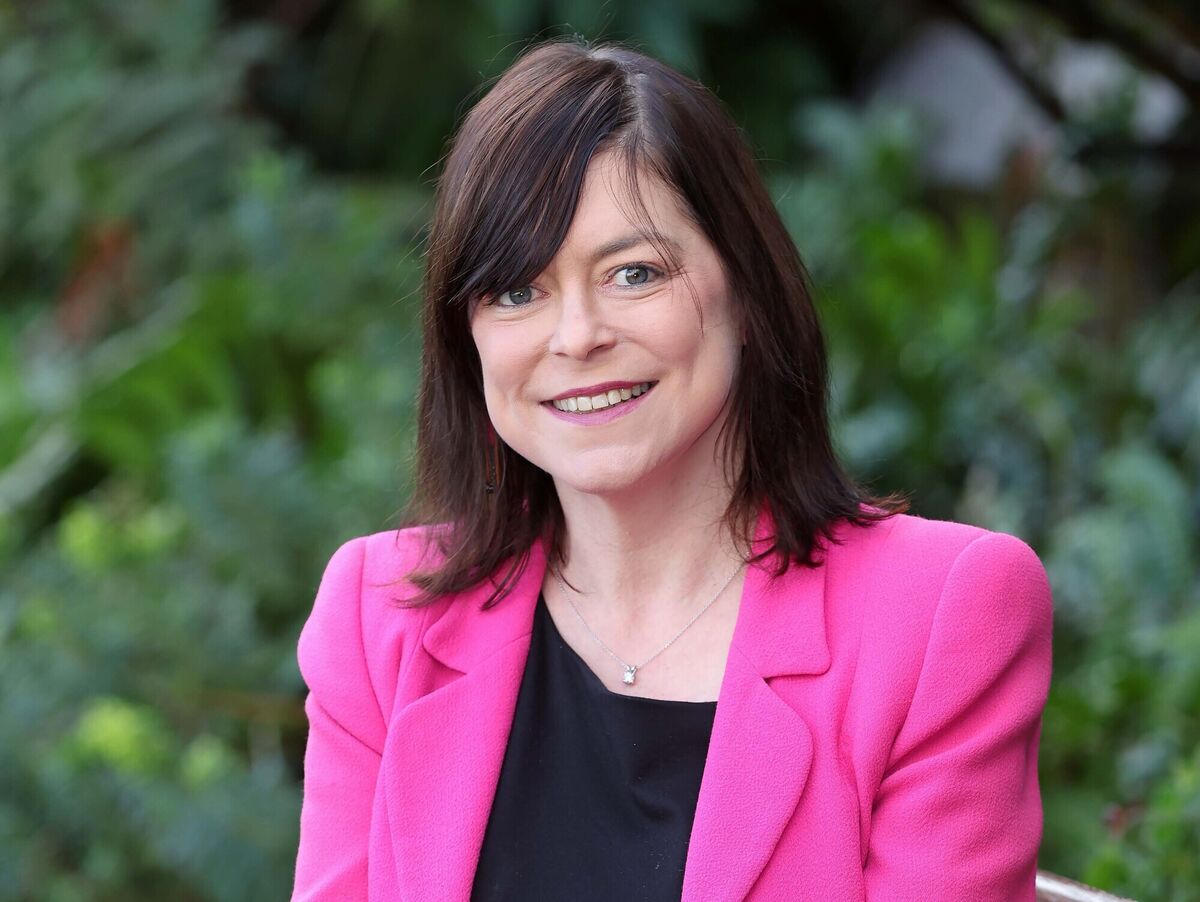
Louise is a professor in UCC’s School of Law, a national voice on violence against women and girls and the developer of the UCC Bystander Intervention Programme, a training resource on how to step in, speak up, and support others in situations of sexual misconduct and sexual violence.
“Gender equality plays out in so many ways. [People] think boys and girls get the same education. In fact, more girls than boys go to university. And in the professions, for example, medicine and the law, we see more women graduating. On the face of it, you’d think, ‘Gosh, we’ve made it.’ Women are getting the opportunities and they’re seizing them. But gender inequality feeds through so many aspects of our society.
“The work that I do is in the area of gender-based violence and the normalisation of sexual harassment among people; the sense of acceptance among men, and some broader society, that women can be treated in this way. They can be subject to verbal comments that many people will shrug off and say, ‘That isn’t really gender inequality,’ but, actually, the way in which women are treated in any way that’s derogatory reflects their standing in society and the fact that we’re almost desensitised to it. There is a level of acceptance of the degrading of women and the treatment of women in a way that is disrespectful.
“Women’s voices are impacted by that in many ways. We see it with female politicians. The way in which they’re treated on social media and in general commentary, they’re treated differently to men.
“It’s the way in which women are framed in society, that all feeds into, for many women, a sense of conflict as to what their role is.
Nobody is second-guessing a man who is travelling with work and pursuing a career and working very hard.
“Those questions don’t attach to men but they do invariably [to women], whether expressly and overtly, or in a kind of silent judgement. Women, and their role, is premised upon gender inequality. It’s premised upon a presumption. That the ideal woman is still, to quote the Constitution, fulfilling her duties in the home. It’s hard to say that we have gender equality when our foundation document, the Irish Constitution, makes specific reference to the ideal family and the gendered roles that they carry. I think that it’s typical of Ireland’s, and the world’s, reluctance, psychologically as well as materially and substantially, to treat women as humans, just like their male counterparts.
“Then there is the wage gap. That arises in so many ways, first that the lower-paid, precarious work is predominantly carried out by women. The higher positions are predominantly held by men, even in those professions I mentioned, where women have a huge presence, but they’re not running the institution. It’s the exception rather than the norm. In academia, we have improved substantially. In UCC, we have moved from the 20% to the 30% in terms of professors. We have made better allowances for maternity leave and other caring-related leave and acknowledgement that a research profile will dip and that there is no penalty for that, and those types of issues, which are very appropriate and very long overdue. Inequality often manifests in a not-so-visible way. It is all of those caring responsibilities and that second job that we have when we go home, whatever time we get to go home, and then it all kicks off.
“I see a difference with younger generations. When I meet young women in the university, or friends of my children, they are certainly more confident. They put themselves first in a way that perhaps we didn’t or our mothers didn’t. I think they have a stronger sense of self, and a stronger sense that they deserve to be looked after and they deserve to succeed. I think that’s really healthy.
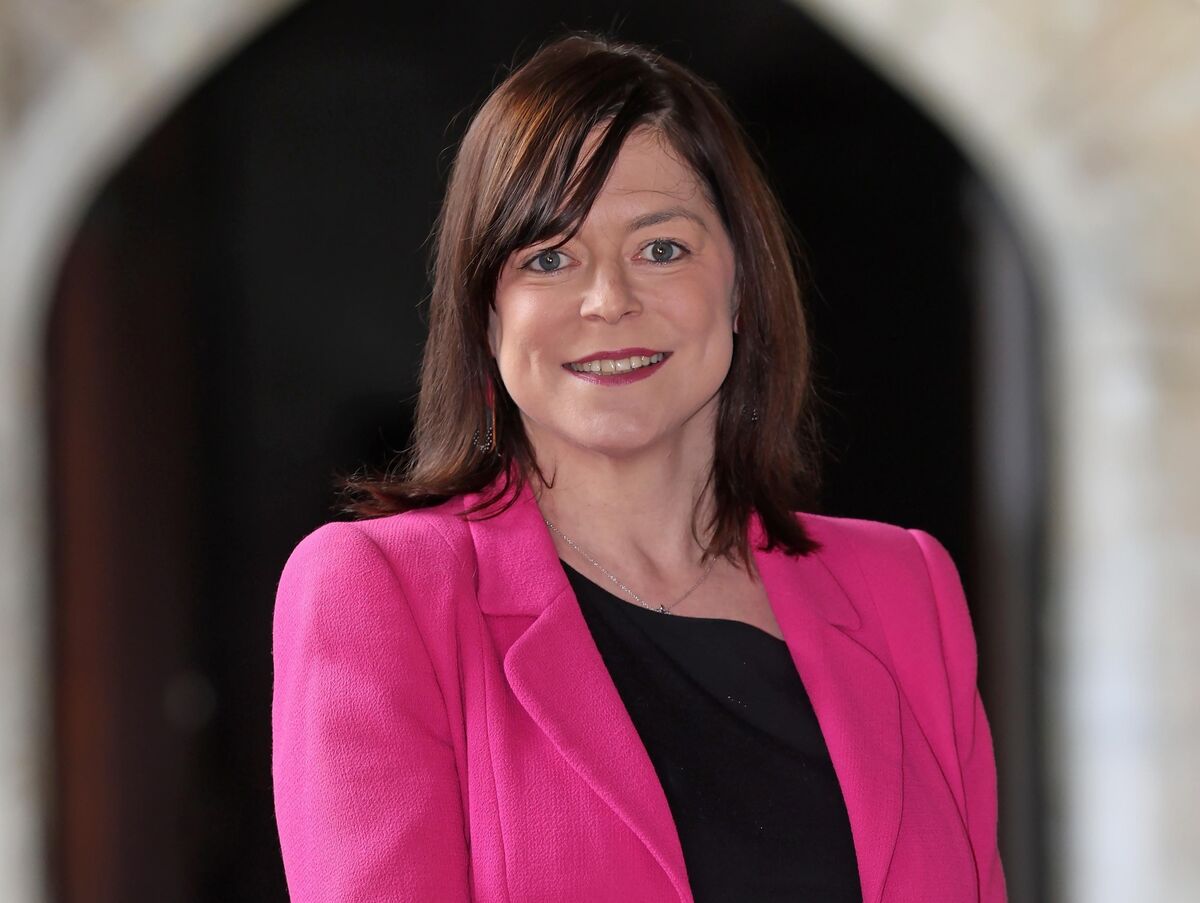
“I developed the Bystander Intervention Programme in 2016. We are reaching classrooms, third-level, industry. Last year, in response to the Women of Honour documentary, I spent nine months with the Defence Forces delivering four-hour workshops on sexual ethics and respectful relationships. I reached 3,000 personnel in the army, navy, and air corps, from the chief of staff, all the way down. We’d have between 30 and 60 in a room for four hours talking about culture, sexual harassment, what does it look like? What are the legal definitions? Big conversations about banter and having the crack and ‘sure what’s wrong with that?’. It was hot and heavy and sometimes very challenging but incredibly interesting and worthwhile.
“Say, for example, you had a school or you had a programme in the university and tonight everybody took the [Bystander Intervention] training. I really believe that the next morning, you’re in a different culture. You’re in a culture of awareness. You’re in a culture of empathy. You’re in a culture of capacity. And you’re in a culture where there’s a collective desire. Come on, let’s all have a better, more respectful experience in UCC, school, sports club or wherever.
“Gender-based violence is truly a workplace issue, a home issue, a societal issue, a socialising issue. It’s everywhere. There’s two of us on the Bystander team and we are run ragged, physically and mentally, but the work is so important. What’s amazing, in a really good way, is the appetite for training. I could do this 24-7 and still not reach everybody who wants it. People really recognise we all have a role to play.”
CONNECT WITH US TODAY
Be the first to know the latest news and updates



